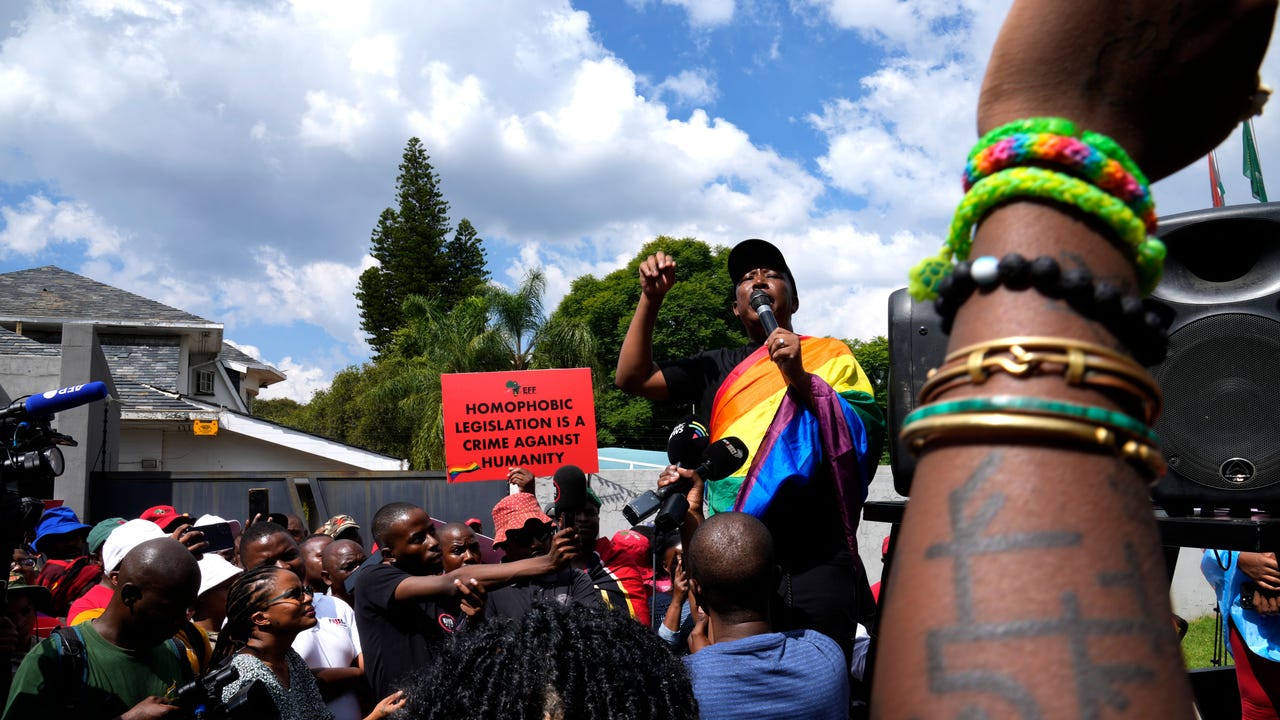The United States government says it has imposed visa restrictions on specific individuals believed to be responsible for, or complicit in, undermining the democratic process in Uganda following adoption of new wide-reaching anti-gay laws in Uganda.
Washington on Friday announced it is imposing visa restrictions for Ugandans it accuses of “undermining the democratic process” in Uganda after the enactment of an anti-gay law in the East African country.
A statement from the State Department which did not name any targeted individuals reads:
“In response to human rights abuses and corruption in Uganda, the United States of America has announces that it is taking steps to impose visa restrictions under Section 212(a)(3)(C) of the Immigration and Nationality Act on Ugandan individuals believed to be responsible for, or complicit in, undermining the democratic process in Uganda.
“As directed by President Biden, the U.S. government will continue to evaluate additional actions under this policy, as well as the use of other tools at our disposal, to promote accountability for Ugandan officials and other individuals responsible for, or complicit in, undermining the democratic process in Uganda, abusing human rights, including those of LGBTQI+ persons, or engaging in corrupt practices.
“As previewed when the Anti-Homosexuality Act 2023 was enacted in Uganda at the end of May, US has also updated its travel guidance to U.S. citizens to highlight the risk that LGBTQI+ persons, or those perceived to be LGBTQI+, could be prosecuted and subjected to life imprisonment or the death penalty based on provisions in the law.
“The United States strongly supports the Ugandan people and remains committed to advancing respect for human rights and fundamental freedoms in Uganda and globally.”
TIME AFRICA had reported that the Uganda’s new law, adopted last month, punishes homosexuality, including with the death penalty in some cases.
Uganda passed one of the world’s toughest anti-gay laws that calls for life imprisonment for anyone convicted of homosexuality. Ugandan president Yoweri Museveni signed the Anti-homosexuality act on Monday despite widespread condemnation from many Western governments and human rights activists.
Same-sex relations were already illegal in Uganda, a religiously conservative East African nation. But the new law levies harsher penalties for LGBTQ people. It calls for the death penalty for “aggravated homosexuality,” which is defined as same-sex relations involving HIV-positive people, children or other vulnerable people. Anyone convicted of “attempted aggravated homosexuality” can be imprisoned for up to 14 years. Ugandans who engages in gay sex can receive life in prison, while anyone who attempts to have same-sex relations can face 10 years in prison.
The legislation has been widely condemned by rights activists and others abroad, but it has wide support in Uganda, including among religious leaders and lawmakers.
In a statement, President Joe Biden called the newly passed law “shameful” and suggested it could impact U.S.-Uganda relations.
“I have directed my National Security Council to evaluate the implications of this law on all aspects of U.S. engagement with Uganda,” he said, “Including our ability to safely deliver services under the U.S. President’s Emergency Plan for AIDS Relief (PEPFAR) and other forms of assistance and investments.”
LGBTQ rights campaigners note homosexuality already was illegal in Uganda under a colonial-era law criminalizing sexual activity “against the order of nature.” The punishment for that offense is life imprisonment.
“We are appalled that the draconian and discriminatory anti-gay bill is now law,” the United Nations’ Human Rights office said in a tweet on Monday. “It is a recipe for systematic violations of the rights of LGBT people & the wider population. It conflicts with the Constitution and international treaties and requires urgent judicial review,” they said.
Homosexuality is criminalized in more than 30 of Africa’s 54 countries. Some Africans see it as behavior imported from abroad and not a sexual orientation.
